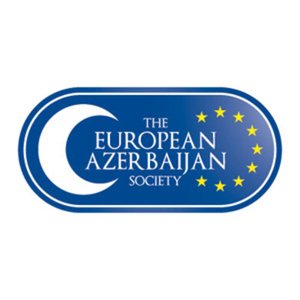European Azerbaijan Society holds event in EU parliament to mark World Refugee Day

To commemorate UN World Refugee Day, the Belgian office of The European Azerbaijan Society (TEAS) has organised a seminar in the European Parliament to draw attention to the ongoing situation affecting hundreds of thousands of internally displaced persons and refugees in Azerbaijan.
The seminar was hosted by MEP Alexandra Thein (ALDE, Germany) and focused on the challenge presented by more than a million IDPs and refugees in Azerbaijan. Participants in the seminar included MEPs and EU officials.
"The seminar shed an invaluable spotlight on the issue, and encouraged us all to focus on how to help solve the problem of IDPs and refugees, especially in Azerbaijan," Alexandra Thein said. "It is very sad to see that a million people are still waiting to return to their homes. The European Union is doing little or nothing to heighten awareness of the impact from this humanitarian calamity on Europe's border."
Roman Huna, head of TEAS Belgium office said: "The world's refugees require political attention. It is simply unacceptable that over 43 million people worldwide are still in need of help and protection. Azerbaijan has one of the highest populations of IDPs per capita in the whole world."
Fuad Isgandarov, Azerbaijani Ambassador to Belgium and Head of Azerbaijani delegation to the European Union said as a result of this conflict, of which Azerbaijan is not the initiator, the problem of IDPs absorbs a huge budget. This money is wasted, due to the illegal occupation of around 18 per cent of Azerbaijani territory. These funds could be more usefully spent to social projects. The ongoing plight of the IDPs and refugees also impacts the development of the new generation in Azerbaijan, which is the victim of the conflict.
MEP Katarína Neveďalová said: "As Europeans, we can and must help the people that are unable to return home. Having visited IDPs and refugee accommodation in Azerbaijan myself, I saw that all IDPs and refugees are bound by common hope.
"We - with all the political tools at our disposal - must translate this hope into concrete reality. The Nagorno-Karabakh conflict must end, and Armenia should respect its international commitments."
The Nagorno-Karabakh conflict emerged in 1988 when Armenia made territorial claims against the neighboring country. Since a lengthy war between the two South Caucasus countries that displaced over a million Azerbaijanis and ended with the signing of a precarious cease-fire in 1994, Armenian armed forces have occupied over 20 percent of Azerbaijan's internationally recognized territory, including the Nagorno-Karabakh region and seven surrounding districts. Armenia has not yet implemented the U.N. Security Council's four resolutions on a pullout from the occupied territories.
Peace talks brokered by OSCE Minsk Group co-chairs representing the United States, Russia and France have been largely fruitless so far.
Here we are to serve you with news right now. It does not cost much, but worth your attention.
Choose to support open, independent, quality journalism and subscribe on a monthly basis.
By subscribing to our online newspaper, you can have full digital access to all news, analysis, and much more.
You can also follow AzerNEWS on Twitter @AzerNewsAz or Facebook @AzerNewsNewspaper
Thank you!
